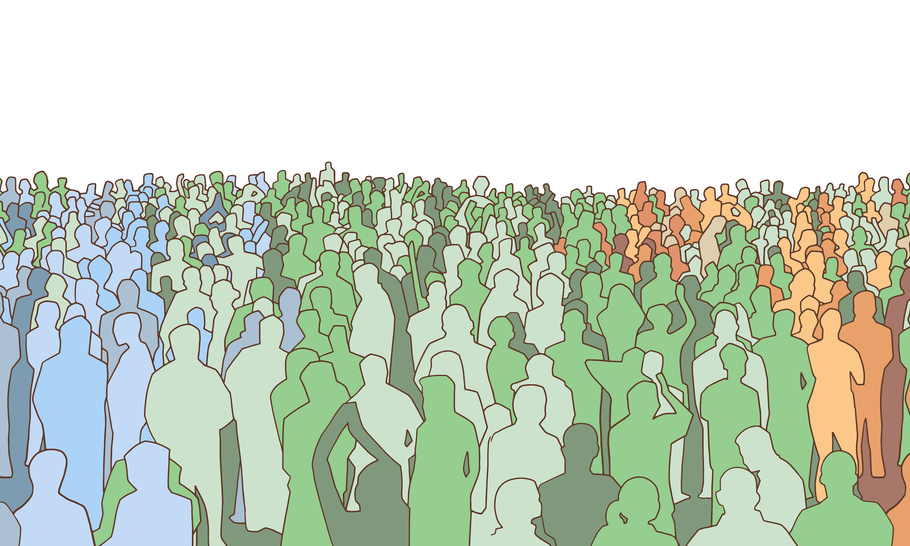The equality nightmare

(Shutterstock)
Life has never been fair. There were always the haves and the have-nots. The distinction used to be that the haves could fill their bellies to their bellies’ desire whereas the have-nots did not have enough to eat. In the last two centuries the situation had slowly changed. Today, in the rich world, nobody goes hungry but there are still haves and have-nots. The Labour Party could still refer to the “few” and to the “many”. They meant the “rich” and the “poor”. The rich have mansions, the poor have council flats.
Such a state of affairs is regarded unfair. They aim at equality. Is that a law of nature? Hardly so. There are mountains and valleys, there are small lakes and big lakes, and there are oceans. Nature abhors uniformity. Does the Labour Party have a chance to bring about a society of equals? Or can we assume at least that British society will be more equal in a few decades’ time?
Well, it certainly will be different. The easy availability of computers and all sorts of digital devices has changed the world, and will keep on changing it. We can do more and we can do it faster. My view is that this will lead to a degree of inequality not seen since feudal times.
The haves and the have-nots will differ from what they are at present. There will be more have-nots and fewer haves. Times will be hard for the have-nots, but not because of any material wants. They will have food aplenty and roof over their heads. They will all have finished secondary school. They will all have university degrees too. Some of them will even have jobs, facultative, of course.
But there is not much point for them to work. The problems they are supposed to solve are all trivial. They are just not bright enough to solve real problems. They receive no wages. They do not need them. All life’s necessities, and all the luxuries, are free.
They have a chance to join the elite; everybody has a chance. It is a meritocratic elite. There is an exam at the age of five, the five-plus. Those who fail do not have a second chance. They are condemned to a life of fun. They become, for the rest of their life, fun-seekers. They play and chat, they are fruitful, they multiply (2.3 children are allowed to every couple), they cultivate the Social Media, they replenish the Earth, and pass judgment over the living and the dead.
Their favourite pastime is to criticise the inadequacies of society. They can say whatever they want, they can even do whatever they want but they cannot change the social system. They have no political clout. They have no means to change the government. They have no vote, there is no Parliament. Anything they say, anything they put on paper, anything they enter into a computer is analysed by a vast array of intelligent machines.
For bright young men and women the future will be good, amazingly good. The world will be their oyster. They will get acquainted with information technology under the age of five and easily pass the five-plus. They graduate to Artificial Intelligence at the age of eight. They learn by trial and error. They hardly need any help. They are examples of Richard Feynman’s dictum that the “powers of instruction are very limited except in those happy circumstances when they are almost superfluous”.
What will these young people revolutionise when they grow up? Actually, they do not need to grow up for starting revolutions. They might do their best work as teenagers. In what field? I think the first choice will be the science and art of hacking. Intrusions into highly secret government establishments will make them happy. After some light prison sentences they will end up in comfortable positions in the United States’ Department of Defense.
Those who respect the law will continue their studies of Artificial Intelligence based heavily on mathematics. They will be allowed to work, to innovate, until they retire in their thirties. After that, they could join one of the fun-seeking groups of the have-nots, participate in the social life of the haves, or play computer games.
What do they achieve? What are their accomplishments? One of the priorities at the beginning was healthcare. They managed completely to robotise it. GPs were replaced by robots and so were surgeons. Success rates of all operations increased. Robots made no mistakes. The problems arising were rather artificial and occurred very rarely. For example, a small group of specialised medical robots was found to have erased the Hippocratic Oath in their software due to a fault in the spare generator. It took a full day for a Committee of Experts to arrive at a decision. It was decided that reprogramming was too risky and those few robots were just to be dismantled and their components put in the Spare Parts Store.
Improvements occurred all the time. Eventually even the Cinderella of robotic systems, Daily Food Delivery, was brought to perfection. Anybody who entered the required items into the home computer before 9pm had fresh food delivered next day: not only delivered, but put into refrigerators by properly programmed Domestic Robots.
Legislation is the job of the Grand Council of the Bright, whose members are appointed by the government. They rule over a happy society. The have-nots are happy because they could play as long as they wanted to, they are well fed, and their wish to be able to engage in conflicts is granted too. They are allowed to hurl insults upon any other have-not.
The haves are happy because they could work, they could produce things: hardware and software, and when in their thirties they no longer have the freshness of mind to innovate, they can look forward to a long and highly-deserved retirement.





